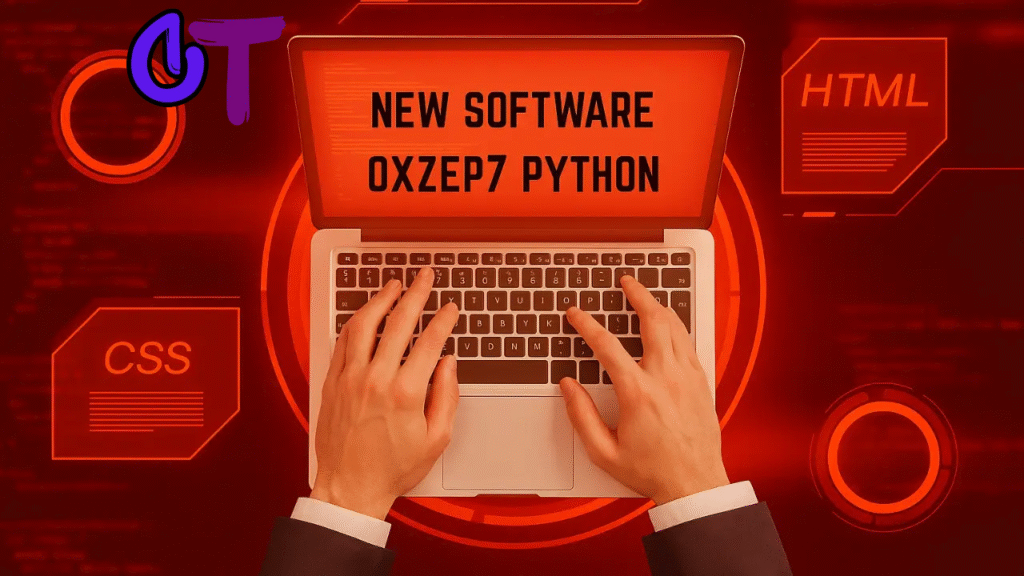Introduction
In the continuous world of software development and data engineering, it is important to keep your equipment and libraries up -to -date. It is important to ensure safety, compatibility, and access to new features. One such important Upgrade Oxzep7 Python Package Received is the traction Oxjep 7-A powerful library is often used for real-time processing tasks in advanced data pipelines, configuration management, and enterprise-grade systems.
Upgrade Oxzep7 Python Package to its latest version, which not only unlocks the increased functionality but also corrects bugs, improves performance, and streamlines integration with other systems. This broad guide consists of all the things required to learn about upgrading Oxjep 7 in its Python environment: the required conditions, detailed upgrade stages, troubleshooting of general issues, and tips to customize your development workflow.
Additionally, we offer a complete FAQ section answering the most frequently asked questions by developers working with Oxesp 7.
What is Oxjep 7 Python?
Oxzep7 is a state-of-the-art Upgrade Oxzep7 Python Library designed to facilitate complex data engineering workflows. It offers such abilities:
- Modular pipeline configuration
- Real-time data stream processing
- Spontaneous integration with cloud services like Google Cloud Platform (GCP)
- Extensible plugin architecture to support custom functions
- Strong error handling and logging framework
The library has quickly become a head of organizations aimed at creating scalable, reliable, and maintained data pipelines and analytics workflows.
Why upgrade oxzep7?
Like any developed software, Oxzep7 releases periodic updates that can include:
- Security patch addressing weaknesses.
Bug improves stability
- New modules and facilities to increase functionality
- Demonstration optimization runtime and reducing resource consumption
- Modern API for easy adoption and compatibility with other Python Libraries
Living on the latest version protects its projects against safety risks, ensures compatibility with other equipment, and provides access to improvements that can save time and cost of growth.
Conditions required to upgrade oxzep7
Before Upgrade Oxzep7 Python, make sure:
- You have Python 3.7 or higher installed (preferably the latest stable release).
- Your development environment (local or cloud) allows administrative or virtual environmental package updates.
- Familiar with PIP – package installer and manager of Python.
- The backup of any existing project configuration depends on oxzep 7, if necessary, to return.
Suitable network and repository access to bring updates from the Python Package Index (PYPI) or other repository.
Dependence and plugin update handling
Modern Upgrade Oxzep7 Python version can divide features into individual plugins, especially cloud connectors
such as Oxesp 7-GCP. To upgrade your project completely:
- Currently, identify which plugins you use.
Upgrade plugins individually, eg:
Bash
PIP installed-upgrade oxesp 7-GCP
- Verify plugin compatibility with your Oxzep7 core version through documentation.
- Use the virtual environment (eg, venv or conda) to safely separate and test installations.
Common issues and solutions when upgrading oxzep7
Issue 1: Elimination after upgrade
- Symptoms: Elegable: No module named oxzep7.data
Solution:
Check if the module path is designed in the latest version.
Adjust import details:
- Python
Old imports:
- Oxesp 7. data from import process
New imports:
- Oxzep 7.Core from import process_Data
- Confirm that you do not have a conflicting version.
Alternatively, roll back using a compatible Oxzep7 version:
Bash
Install pip oxzep7 ==
Issue 2: Edition with plugins mismatched
Ensure that you upgrade plugins to compatible versions with the latest Upgrade Oxzep7 Python core. Plugin-specific readme or release notes provide compatibility matrices.
Issue 3: permission on the upgrade
Run upgrade commands with advanced privileges:
- On Windows, run CMD or PowerShell as administrator.
Prepend with Sudo on Linux/Macos:
Bash
- Sudo Pip3 installed -October 7
- Upgrade Oxzep7 Python optimizing your workflow with an upgrade
Use automation scripts to Upgrade Oxzep7 Python and plugins regularly.
- Take advantage of the virtual environment to test new versions before production certification.
- Review the official Oxesp 7 Repository for regular Changelogs, Migration Guides, and Community Discussions.
Integrate continuous integration/continuous delivery (CI/CD) pipelines that verify Oxzep7 compatibility automatically.
conclusion
Upgrading the Upgrade Oxzep7 Python package is an important task for developers and data engineers that aims to exploit the latest progress and maintain strong, secure data pipelines. With clear step-by-step instructions, troubleshooting tips, and best practices, this guide equips you to upgrade smoothly and confidently.
FAQ
How do I check my current Oxesp 7 version?
Run Pip Show Oxzep7 or Pip Freeze | Grep oxzep7 in your terminal.
What is the default command to upgrade oxzep7?
For the latest updates, use PIP installed -upgrade Oxzep7.
Do I need to upgrade Python before upgrading Oxjep 7?
It is recommended to use Python 3.7 or later for compatibility with recent oxesp 7 versions.
What if my code breaks after upgrading Oxzep7?
Review the Changelog to break down the changes and customize your import path and function calls accordingly.
How do I upgrade Oxjep 7 plugins?
Personally upgrade plugins, eg, PIP Install-Upgrad Oxesp 7-GCP.
Can I roll back to an old Oxjep 7 version?
Yes, specify with the version: Pip Oxzep7 == X.y.Z install.


